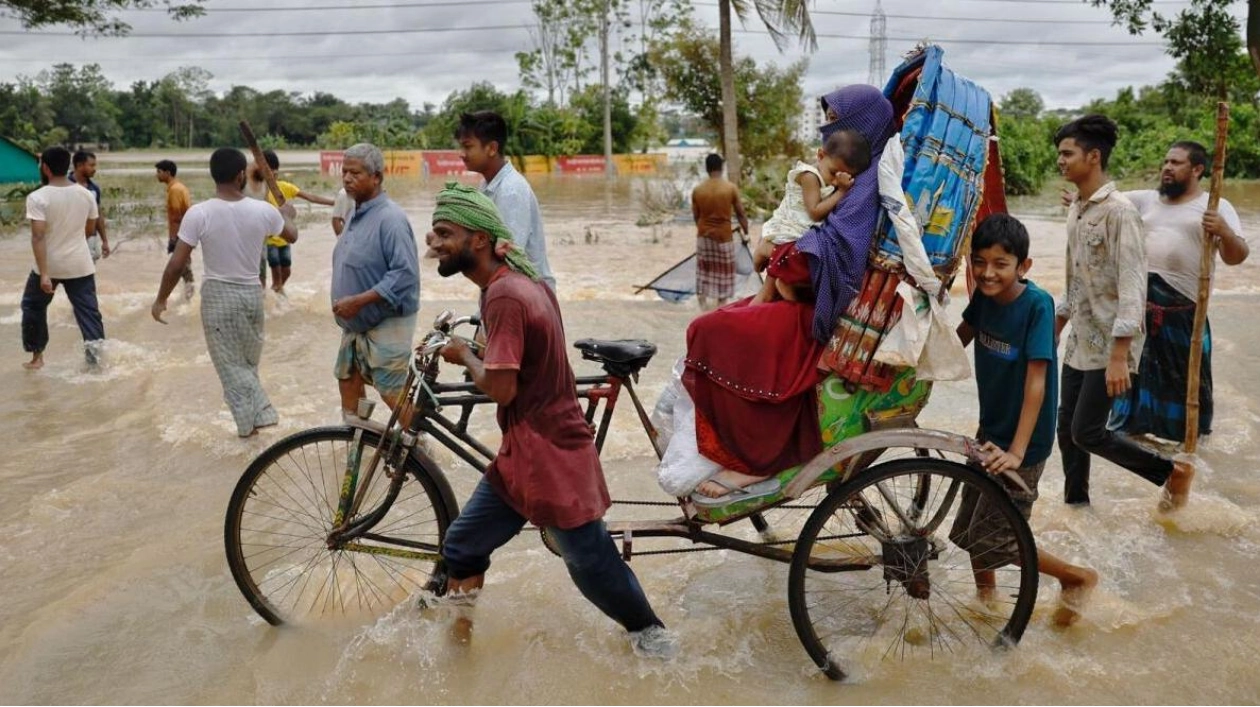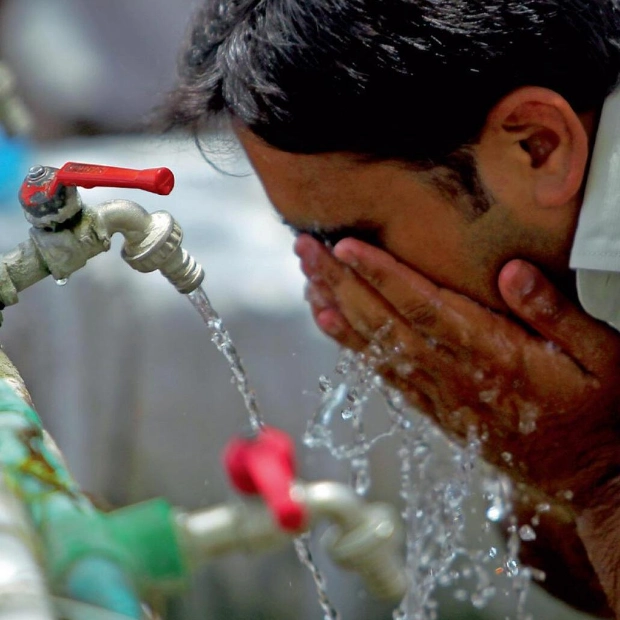River waters in low-lying Bangladesh are receding after days of deadly floods, but 300,000 people remain in emergency shelters requiring aid, disaster officials said on Sunday. The heavy floods, which killed at least 18 people in Bangladesh, have compounded the challenges for the new government that took charge early this month following a student-led revolution. Rescue teams, including joint forces of the army, air force, and navy, are assisting those displaced from their homes and delivering aid to those who have lost everything, said Faruk-e-Azam, the disaster management minister. "The flood situation is improving as the flood water started to recede," Azam told AFP. More than 307,000 people are in shelters and over 5.2 million have been affected by the floods, according to the ministry. "Now we are working to restore communication in the affected areas so that we can distribute relief food," Azam added. "We are also taking steps to prevent the spread of contagious diseases." This adds to the challenges of a nation still recovering from weeks of political turmoil, which culminated in the ousting of autocratic leader Sheikh Hasina, who fled to India by helicopter. With an interim government led by Nobel Peace Prize laureate Muhammad Yunus still finding its footing, ordinary Bangladeshis have been crowdfunding relief efforts. Highways and rail lines were damaged between the capital Dhaka and the main port city of Chittagong, making access to severely flooded districts difficult and disrupting business activity. Monsoon rains cause widespread destruction annually, but climate change is altering weather patterns and increasing the frequency of extreme weather events. The nation of 170 million people, crisscrossed by hundreds of rivers, has experienced frequent floods in recent decades. Much of the country is comprised of deltas where the Himalayan rivers the Ganges and the Brahmaputra flow towards the sea after passing through India. It is among the countries most vulnerable to disasters and climate change, according to the Global Climate Risk Index. Floods in upstream India have also caused significant damage, with at least 24 people killed in Tripura state since Monday.

Text: Lara Palmer
26.08.2024
Heavy floods in Bangladesh add to challenges for new government amidst ongoing relief efforts





